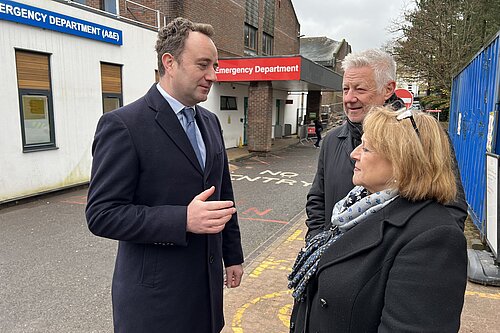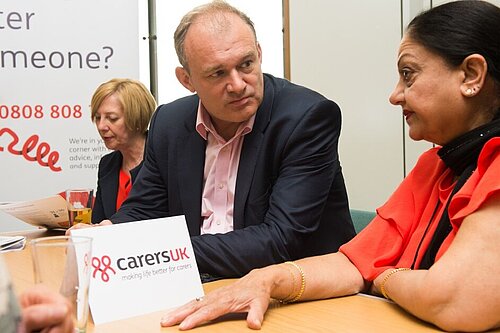
Save our A&E
Danny Chambers is fighting the plan to stop vital NHS services leaving Winchester.
The National Health Service (NHS) and its staff, as well as the millions of carers in the UK, need greater and better support

Danny Chambers is fighting the plan to stop vital NHS services leaving Winchester.

The Liberal Democrats are calling for a higher minimum wage for care workers in Hampshire, to tackle chronic staff shortages in social care.

Carers are not just support for their loved ones—they are the glue holding our fragile social care system together. They deserve more than token acknowledgements or empty promises.

The National Health Service (NHS) is something that Britain is justifiably proud of, but it is also a system that has been pushed to breaking point and is in desperate need of support and careful change to ensure it can properly serve those with health issues.
The issue of social care is something that has been ignored by too long and its knock-on impacts now threaten to overwhelm an already challenged health service.
We need to rethink how we do healthcare in the UK, putting more resources into preventative medicine and providing more support to the millions of carers across the country that independently maintain the nation's health. And we need to make sure that we are able to fill the vacancies that already exist in the NHS.
Economist Andrew Dilnot was asked to look at the issue of social care by the LibDem-Conservative coalition and in 2011 the Dilnot Commission published its report with several recommendations.
Key among them was that there should be a cap of £35,000 on how much someone has to pay for their adult social care costs. It also recommended that people should be allowed to have savings of £100,000 before support is withdrawn, quadrupling the current £23,250 theshold.
Both recommendations were designed to tackle the unpleasant reality that more and more people have to sell their homes to pay for their care, leaving them stranded and struggling financially at their most vulnerable time of life. The government would fund local authorities to cover the cost.
Despite more than a decade of acknowledging social care as a growing problem, implementation of the Dilnot recommendations has still not happened. The £35,000 cap was quickly increased to £75,000, but citing financial pressures, first prime minister David Cameron and then Theresa May refused to introduce it. After years of pressure, the Conservative government under Boris Johnson said it would introduce the cap at an increased cap of £86,000 but then under Rishi Sunak, the government backtracked again saying it wouldn't be implemented for another two years, pushing it back to November 2024. The savings level is still set at £23,250 more than a decade after Dilnot recommended raising it.
The ongoing failure to act is “a stain on us as a nation", Andrew Dilnot has said.
More recently, the collapse of the social care system has led to crippling delays in ambulance times and accident and emergency appointments because patients have no beds to be discharged to outside a hospital, causing backlogs. |